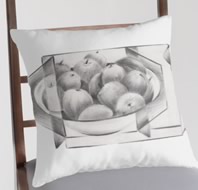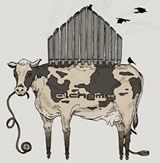useNature.com ... Holistic Therapy Lifestyle Nutrition Foundation
Nutrition & Diet Suggestions
A Balanced Diet to achieve Good Health
Physical & Mental aspects in relation to your Health
Article: Nutritional Health - Diet Suggestions - Part 6
Balanced Diet - General Diet Suggestions
Holistic Diet & Optimal Nutrition Guidelines
..... by Dieter Luske N.D.-D.C.H.-D.M.H.-D.H
Holistic Therapy Consultant - Gold Coast - Canungra
General Diet Suggestions
What to eat?
First of all, "Fresh is Best", second if you can't get it fresh, get it un-processed and frozen. And third, whatever you do eat, don't overeat, always under-eat.
To under-eat is the only real scientifically proven method to extend life.
To under-eat, does NOT mean to starve yourself, it just more or less means not to stuff yourself. Look around you, there are more over-weight people than ever ... this is not because of under-eating.
What to eat .... first, eat your veggies, and if at all possible source organic produce.
Vegetables
Vegetables are classed as Complex Carbohydrates,and they can be differentiated by the Glycaemic Index.
The GI ranks carbohydrates according to their effect on blood glucose levels. The lower the GI, the slower the rise in blood sugars, glucose levels. Low GI foods are foods with a GI less than 55. Another way to slow down blood glucose levels is to combine vegetables with healthy fats, such as fish oils, salmon, flaxseed, or olive oils, and similar.
Vegetables are extraordinary sources of minerals, enzymes, vitamins, trace elements and soluble and insoluble fibre. Most green leafy vegetables contain complete proteins of the highest quality. The proteins in alfalfa, parsley, and potatoes, are high in biological value.
Garlic, onions, and leek, are excellent health-promoting as well as medicinal foods and should form an important part of the diet. They contain sulphur and selenium.
The green in plant life repairs and rejuvenates human tissue. The chlorophyll in green pigment is the life-force of the plant, and this force provides life-giving materials for the human body.
The darker the colour in green vegetables, the richer they will be in chlorophyll, which is similar in composition to human haemoglobin, except that it contains magnesium instead of iron.
Chlorophyll enters the bloodstream almost immediately, requiring no digestion.
Be sure to have at least six vegetables each day and two should be green. And talking about the colours of vegetables, red pigments have been proven to be good anti-oxidants, some say anti-cancer (as in Beetroot).
Get to know your vegetables and eat a wide variety, check the following list:
Artichoke - Asparagus - Burdock - Beet - Bamboo shoots - Brussels sprouts - Broccoli - Beans - Carrot - Cabbage, white, red, green (kale), Chinese - Celery - Cauliflowers - Capsicum - Chicory - Choko - Cress - Cucumbers - Eggplant - Endive - Horseradish - Leeks - Lettuce - Mushrooms - Okra - Onions - Parsnip - Peas - Potatoes - Pumpkins - Parsley - Radishes - Rhubarb - Silver Beet - Spinach - Sweet Corn - Sweet Potatoes - Sorrel - Turnip - Tomatoes - Zucchini - consider also Stinging Nettle - Dandelion greens - Nasturtium Leafs and other Herbs and Spices.
Ginger can be used as vegetable or as a herb or spice. It tastes good added to meals and helps digestive problems. It relieves mucous congestion, it is a warming stimulant and an anti-inflammatory.
Garlic is a potent medicinal herb and spice and should be part of your daily diet. It is an anti-oxidant, anti-bacterial, anti-viral, and anti-fungal (killing Candida albicans). Mix with parsley or lemon juice to reduce odour.
Seeds And Nuts
... are important and potent health-building foods. They contain all the nutrients essential for human growth, sustenance of health, and prevention of disease in the most perfect combination and balance. Sprouting increases the nutritive value.
Mung beans, alfalfa, and soybeans make excellent sprouts. Soybeans contain complete proteins.
Chew nuts and seeds well or soak before eating.
Nuts generally combine well with apple (with its pectin).
The best seeds are; sesame seeds, pumpkin seeds, sunflower seeds, linseeds.
Make sure they are fresh. (Rancid seeds and nuts can be harmful)
Seeds and nuts are the best natural sources of essential unsaturated fatty acids.
They are also nature's best source of lecithin, B-complex, and vitamin E, if sprouted, also vitamin C & A.
Grains
... are high in Carbohydrate and may lead to over-consumption. - As more carbohydrates you have, as more you will crave.
Grains should be un-refined to lower the Glycemic Index, and it is advisable for most people to limit their consumption.
Most people eat too much grains and therefore carbohydrates... and most people have concentrated their grain input on "Refined Wheat Products", which can give rise to a number of health problems, increasing weight and possible allergies and inflammation.
There is no need to stop grains, as always, the problem is the over consumption, find your balance.
Get to know your grains:
Amaranth - Barley - Buckwheat - Corn - Kamut - Millet - Oats - Quinoa - Rice - Rye - Spelt - Wheat.
When cooking grains in water, always add a pinch of sea salt. This prevents the leaching of essential micro nutrients from the grains and make the grains more alkaline.
Wheat is one of the most common allergens; restrict your wheat intake to the minimum. If eating wheat in any form, even wheat germ, gives you any trouble; such as gas, indigestion, excessive mucus, stomach pain or increased pulse rate, leave it out of your diet completely.
You can become sensitive to wheat products if you consume them on a daily basis.
Wheat is not a superior Grain, it is only used that much because of the high gluten content, which makes it ideal for baking etc., but not ideal for your health.
Millet is the only alkaline forming grain, and Buckwheat, not a grain in the true sense, can be used in grain allergy.
The best bread is a sourdough rye bread, or sprouted breads. Also try some Spelt and Amaranth breads, they taste excellent.
Fruits
Fruits are excellent sources of minerals, vitamins, and enzymes. They are easily digested and exert a cleansing effect on the blood and the digestive tract. In addition to all available fresh fruits in season, you may include a small amount of dried fruits. Dried fruits should always be pre-soaked before eating. Fruits are best eaten for breakfast or as a snack between meals in the right ratio with protein and fat...
Some people have a fruit allergy, esp. Citrus fruit (Oranges), apples, strawberries, pineapple.
Fresh fruit should be eaten in season. Try to buy ripe fruit from your local farmer. Fruit is usually picked in the green, unripe state, which will make it harder to digest. Fruit is best if picked in the sun-ripe -state, only then will the fruit be loaded with vitamin C.
Take your pick :
Apple - Apricots - Avocado - Banana - Blackberries - Blueberries - Boysenberries - Cantaloupe - Cherries - Cranberry - Currants - Dates - Elderberries - Figs - Gooseberries - Grapefruit - Grapes - Guava - Honeydew melon - Kumquats - Lemon - Lime - Loganberries - Loquats - Lychees - Mango - Nectarine - Olives - Orange - Papaya - Peach - Pear - Persimmon - Pineapple - Plums - Pomegranate - Raspberries - Rhubarb - Strawberries - Tangerine - Watermelon.
Fruit juice, particular commercial fruit juices are not recommended, the sugar content is far too high.
Fructose may cause further problems. If you have a fresh fruit juice, mix some oils with it and possibly even some protein powder or an egg, to balance the sugar contend, and slow down the sugar uptake.
Fruit and Vegetable don't mix, and always eat melons on their own.
Fish
Fish is highly recommended (not shellfish), easy to digest, a very good source of protein and as research indicates, Fish Muscle Oil, EPA/DHA Lipids, are anti-inflammatory and anti-clotting, which makes fish a valuable agent against coronary heart disease, arthritis and some skin problems.
Tinned fish may be used if it contains no preservatives. Never fry or smoke fish, but cook slowly, steam, or bake in a casserole dish, covered with lemon juice.
If you do fry, use coconut oil, it is a more heat tolerant oil.
Eggs
Eggs should be eaten soft-boiled or poached, never hard-boiled or fried. Restrict eggs if allergic reactions occurs. Cholesterol is a problem only in over-cooked or fried eggs.
Fats And Oils
Lots of controversy here .. generally speaking, there has been a fat phobia for a long time.
The general rule is to minimise "saturated fats", as they are very high in energy and will contribute to a cholesterol problem, esp if fried. But not all saturated oils are bad, some like Coconut, obviously not an animal fat, have amazing health benefits.
Saturated Fat (minimise) - which is the animal fat and it is easy recognised as it is hard at room temperature. The white stuff around meat is saturated fat, only eat a limited amount, if possible form an organic source.
Un-saturated Fat - which is of plant origin and it is liquid in room temperature. Oil can become rancid quickly and care has to be taken in storage. Oil is not heat resistant, if you buy a cold pressed oil, it should be used cold, not heated.
Medium Chain Fatty Acid - Coconut Oil - which is a saturated non-animal fat with many health benefits - read more > click >> Coconut-Oil-Health-Benefits
Avoid the poly-unsaturated fats found in Margarine and hydrogenated cooking oils.
Fat currently makes up about 40 percent of the modern diet mainly as fried food, and in medical studies is the nutrient most associated with degenerative illnesses, including heart disease and cancer.
Oils are essential and best supplied by eating the products in which they naturally occur.
Nuts and seeds contain oil in the ideal proportion for daily consumption.
Second best are well-stored cold-pressed oils, free of added chemicals. The label should state that the oil is cold-pressed - extra virgin oil.
Fish is low in saturated fatty acids, while high in unsaturated and linoleic acid.
Vegetable oils the highest sources of linoleic acids.
Cold pressed Linseed Oil (same as Flaxseed) can be used as an ideal natural supplement for your essential fatty acid requirements.
Linseed oil is a source of "alpha linolenic Acid". From this, the body can manufacture its own EPA, which is important for helping regulate the production of prostaglandins (hormone-like substances), aid in reducing inflammation.
Linoleic and linolenic acid are two essential fatty acids (EFA), which cannot be produced in the body.
But by far the best Oil is Coconut Oil.
Beneficial properties, which are attributed to the 50% Lauric acid, Capric acid and Caprylic acid content are: antimicrobial, antioxidant, anti fungal, anti bacterial, anti ageing
Benefits include;
Weight loss, maintaining or lowering cholesterol levels, increased immunity, proper digestion and metabolism, relief from kidney problems, gallbladder stone prevention, heart diseases, high blood pressure, diabetes, thyroid, dental care, and bone strength, and many more...
Recommendation: use Coconut Oil - a medium chain fatty acid heat resistant oil, which has many other health benefits.
Legumes
Legumes frequently cause digestive problems. This is due to a carbohydrate component, which is difficult to break down. Therefore, part of it remains undigested and causes fermentation and wind in the large intestine.
For these reasons, legumes are best eaten sprouted, fermented, or soaked 24 hours (tip out the soaking water) and cooked.
Legumes : Soybeans, Lentils, Peas, Beans, Peanut ... See section on special food.
Next: Part 7 - Special Foods - click > Soy Products
or ... click here for Use Natures Health Manual Menu
Article provided by ...
the editor of Use Nature, Dieter Luske
To read more, go to the :: Self Help Menu
Related Treatment Modalities : Naturopath - Nutritionist
* Disclaimer - Any general advice given in any article should not be relied upon and should not be taken as a substitute for visiting a qualified medical Doctor.
 Dieter Lüske - Editor
Dieter Lüske - Editor
N.D.-D.C.H.-D.M.H.-D.H
Editor's Articles
Lifestyle Magazine
Natural Health and Lifestyle
Articles:
Diet Confusion?
One apple a day?
Buy > useNature Sticker
Facebook Groups
Healing with Sound
Alchemix
Recording Studios
Sound Production:Recording - Mixing &
Mastering Services
Voice Over's
Healing with Art
creative art classes
all levels - all styles
individual teaching
Gold Cost - Hinterland
Scenic Rim - Canungra
© 1998 - 2024 useNature.com: Australia - Dieter Luske - Writer - Creative Lifestyle Portal - Natural Holistic Health - Books & Art -
Site Map - Terms / Privacy - Global Health | Free Alpha Music | Photography | Natural Links |




